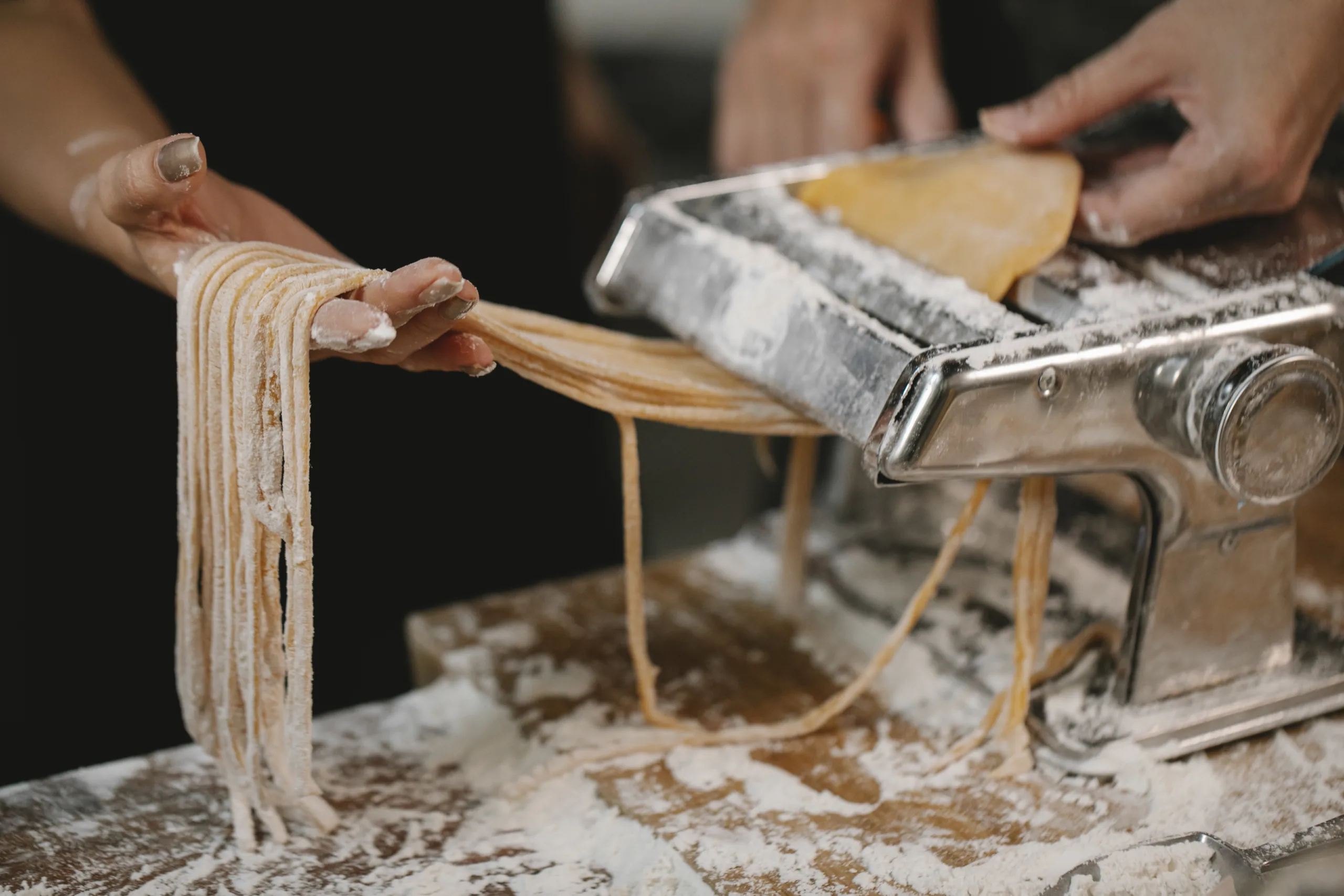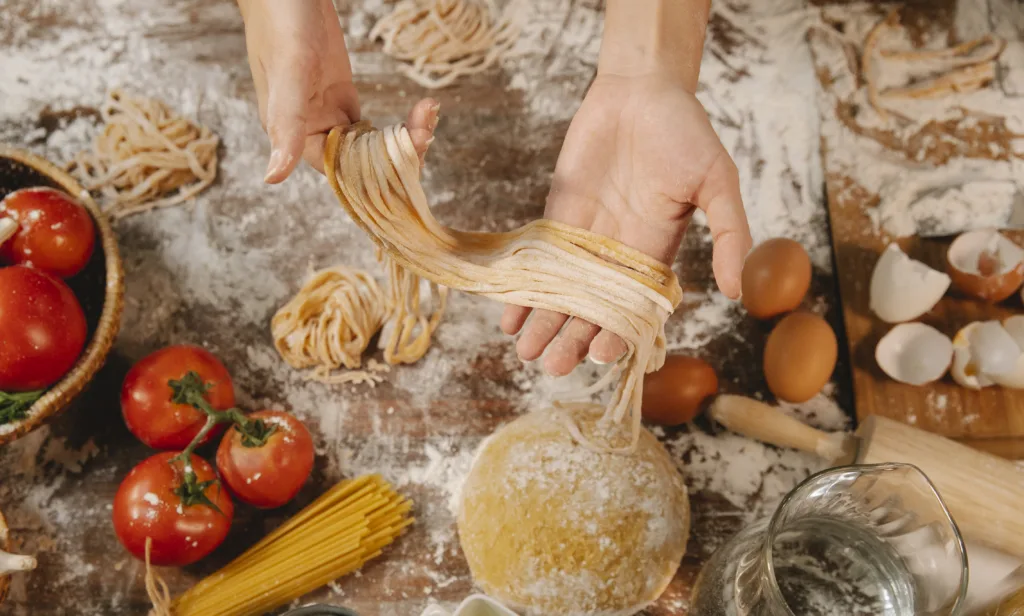Have you ever been stuck in a situation where you wanted to cook spaghetti but noticed that the expiration date has passed? You may be wondering how long does spaghetti last after the expiration date? How safe is it to eat expired spaghetti?
In this article, we will explore the shelf life of spaghetti, how to tell if it is still good for consumption and how to store it properly. With this information, you can make an informed decision about whether or not it is safe for consumption. No matter what your cooking needs are, it’s important to know the answers to these questions so that you can make the best decision for your health and safety.
The shelf life of spaghetti after its expiration date has passed is typically between 3-5 days, however it is not recommended to consume the product as its quality will have decreased.
How to Tell if Spaghetti is Still Edible After Its Expiration Date
Spaghetti is a staple in many households, and it can last for quite a long time when stored properly. However, it does have an expiration date, so it’s important to know how to tell if spaghetti is still edible after its expiration date has passed. Fortunately, there are a few methods you can use to determine whether or not your spaghetti is still safe to eat.
First, check the spaghetti’s appearance. If the noodles are discolored or darkened in any way, they may no longer be safe to consume. Additionally, if the spaghetti has a strange odor or slimy texture, it should be discarded.
Second, pay attention to the expiration date on the package and any other storage instructions that may have been provided. If the package states that it needs to be refrigerated after opening and you haven’t done so, then the spaghetti may no longer be safe to eat. Additionally, check for any signs of mold or insect infestation on the package itself.
Finally, cook a small portion of pasta and taste it before consuming large amounts. If it tastes off in any way or causes any type of stomach discomfort after eating it, then discard the rest of the pasta immediately as it may no longer be safe for consumption.
In summary, it’s important to check for discolorations on noodles and strange odors when determining whether or not spaghetti is still edible after its expiration date has passed. Additionally, follow any storage instructions listed on packaging and cook a small portion before consuming large amounts of pasta as a way to ensure food safety.
What Happens if You Eat Expired Spaghetti?
Eating expired spaghetti may not be the most appetizing thought, but it can happen. While eating expired spaghetti is generally safe, it can cause some unpleasant side effects. It’s important to understand what happens when you eat expired spaghetti so that you can avoid any negative consequences.
The most common side effect of eating expired spaghetti is indigestion. Eating foods that are past their expiration date can lead to digestive issues such as stomach cramps, bloating, and gas. This is because the food has started to break down and become less nutritious. Additionally, the bacteria in the food may have started to multiply, leading to an upset stomach or other gastrointestinal issues.
Eating expired spaghetti can also cause food poisoning. Bacteria such as salmonella and E. coli are often present in foods that have been left out too long or left at room temperature for an extended period of time. If these bacteria are ingested, they can cause a range of unpleasant symptoms including vomiting, fever, and diarrhea. In some cases, food poisoning from expired spaghetti can be serious and even life-threatening if not treated promptly.
It’s important to note that while eating expired spaghetti is generally safe for healthy adults, it may be more dangerous for young children or elderly individuals with weakened immune systems. Therefore, it’s best to avoid eating expired foods altogether if possible.
In general, it’s best to check the expiration date on your food before consuming it and discard any food that has passed its expiration date. This will help ensure that you are avoiding any potential risks associated with eating expired foods and will also help keep your meals tasting fresh and delicious!
Shelf Life of Spaghetti After Expiration Date
The shelf life of spaghetti after an expiration date depends on several factors. These include the type of pasta, its packaging, storage conditions, and the temperature at which it is stored. The shelf life of cooked spaghetti is typically shorter than that of uncooked pasta.
The type of pasta affects its shelf life after the expiration date has passed. Generally, dried or dehydrated pasta will last longer than fresh pasta due to its lack of moisture content. For example, dried spaghetti can last up to two years after its expiration date. On the other hand, fresh pasta can only last up to a few days past its expiration date due to its water content and higher risk for spoilage.
The packaging of spaghetti also plays a role in determining how long it lasts after an expiration date has passed. When stored correctly in air-tight containers or bags, cooked or uncooked spaghetti can last up to two weeks past its expiration date. If stored improperly in unsealed packages, the shelf life may be much shorter as bacteria and other contaminants can quickly contaminate the food and cause it to spoil more quickly.
The storage conditions are also important when considering how long spaghetti lasts past its expiration date. The ideal temperature for storing cooked or uncooked spaghetti is around 40 degrees Fahrenheit; however, if stored at a temperature that is too high or too low – either from being left out on the countertop or kept in a refrigerator that is not set correctly – then the food will spoil faster than usual and should be thrown away as soon as possible.
Finally, the temperature at which the spaghetti is stored also affects how long it will remain safe to eat after an expiration date has passed. Generally speaking, cooked or uncooked spaghetti should be kept at a cool room temperature if not consumed immediately; however, if it is placed in a refrigerator then it should be consumed within 1-2 days as cold temperatures can slow down spoilage but will not completely prevent it from occurring eventually.
In conclusion, there are several factors that determine how long spaghetti lasts past an expiration date including the type of pasta, packaging, storage conditions, and temperature at which it is stored. To ensure maximum freshness and safety when consuming any food product past its expiration date always follow proper storage instructions and consume within 1-2 days for optimal results.
Are There Any Risks Associated with Eating Expired Spaghetti?
Eating expired spaghetti can lead to a number of risks, depending on how long it has been expired. If the spaghetti has just passed its expiration date, it is safe to eat, but may have lost some of its flavor and texture. However, if the spaghetti has been expired for an extended period of time, it can become a health hazard. Bacteria can start to grow on the pasta, making it unsafe to eat. Additionally, any sauces or other ingredients added to the spaghetti can also become unsafe if they have been expired for too long.
It is important to note that eating expired spaghetti does not usually cause serious illness or food poisoning. However, if you are feeling ill after eating expired spaghetti, seek medical attention immediately as food poisoning can be serious and even life-threatening in some cases.
If you are unsure about the safety of your spaghetti or any other food, it is always best to err on the side of caution and throw away any food that has been expired for an extended period of time. It is also wise to check expiration dates carefully before purchasing or consuming any food products.
By taking these precautions and following basic food safety guidelines, you can help protect yourself from any potential risks associated with eating expired spaghetti or other foods.

What Should You Do if You Have Expired Spaghetti in Your Pantry?
If you have expired spaghetti in your pantry, the best thing to do is to throw it away. Pasta has a relatively long shelf life, but it can still become spoiled over time. If the spaghetti has been exposed to moisture, fungus or bacteria, then it could make you sick if you eat it. Even if the spaghetti looks and smells alright, consuming it after its expiration date could lead to food poisoning.
When checking for expiration dates on products like pasta, make sure to look on the back or bottom of the package for a best by date. This will tell you when the product should be consumed by in order to avoid any potential health risks. If you find that your spaghetti is past its expiration date, then it’s best to discard it and buy a new package of fresh pasta.
It’s also important to store your pasta properly in order to ensure that it doesn’t spoil prematurely. Keep your spaghetti in an airtight container or bag and store it in a cool, dry place away from direct sunlight and moisture. This will help ensure that your pasta stays fresh for as long as possible before reaching its expiration date.
By following these tips, you can make sure that your pasta stays safe for consumption and avoid any potential health risks associated with eating expired spaghetti.
Can You Tell if Spaghetti Has Spoiled After Its Expiration Date?
It is possible to tell if spaghetti has spoiled after its expiration date, although this can be difficult. One of the most obvious signs is a bad odor coming from the spaghetti. If the spaghetti smells rotten or has an off-putting smell, it is likely spoiled. Additionally, the appearance of the spaghetti can be an indicator as well. If the noodles are slimy or discolored, there is a good chance that they have gone bad.
If there are any signs of mold on the noodles, then it should be thrown away immediately. While some may think that it is safe to simply cut off any visible mold and use the rest of the pasta, this is not recommended since mold can spread quickly and contaminate other food in contact with it.
Another way to tell if spaghetti has gone bad after its expiration date is to taste a small amount of it. If it tastes sour or off in any way, then it should be thrown away since consuming spoiled food can lead to food poisoning.
Finally, if all else fails, it may be best to err on the side of caution and discard the spaghetti after its expiration date. Although pasta does have a long shelf life when stored properly, eating spoiled food can lead to serious health complications and should always be avoided.
Is It Safe to Eat Spaghetti That Has Passed Its Expiration Date?
The short answer is no, it is generally not safe to eat spaghetti that has passed its expiration date. Pasta, like many other foods, has a shelf life. Over time, the quality of the pasta can decline and bacteria can begin to grow. Eating expired pasta could lead to foodborne illnesses such as salmonella or E-coli and cause severe discomfort or even hospitalization.
It is important to check the expiration date on store-bought spaghetti before purchasing or consuming it. If the date has passed, it should be thrown away immediately and not consumed under any circumstances.
When preparing homemade spaghetti dishes, it is also important to practice proper food safety measures. Cooked spaghetti dishes should not be left out for more than two hours at room temperature as bacteria can quickly multiply in warm environments. Any cooked pasta that has been left out for more than two hours should be discarded immediately and not eaten.
Overall, eating expired pasta is not recommended as it could potentially lead to foodborne illnesses. Check the expiration dates on store-bought spaghetti before purchasing or consuming it and practice proper food safety measures when making homemade dishes with pasta.

Conclusion
Spaghetti should not be eaten after the expiration date. However, if you do eat it, you can usually tell that it has gone bad. The pasta will be discolored, brittle, and have a sour smell and taste. It may also have a slimy texture. If you are unsure if the spaghetti has gone bad, it is best to discard it.
In general, dried spaghetti can last for up to two years when stored properly in its original packaging in a cool, dry place. Once cooked, it can last for up to four days in the refrigerator or one year in the freezer as long as it is packaged correctly.
When dealing with expired spaghetti, the best advice is to err on the side of caution and discard it if there is any doubt about its safety. Taking these precautions will help ensure that you and your family stay healthy and safe from food-borne illnesses.
With proper storage techniques and food safety practices in mind, you can ensure that your dried spaghetti will last for up to two years before needing to be replaced. Furthermore, cooked spaghetti can last for up to four days in the refrigerator or one year in the freezer as long as it is packaged correctly. By following these simple guidelines, you can enjoy delicious homemade spaghetti dishes without worrying about spoiling them before they have been eaten.
